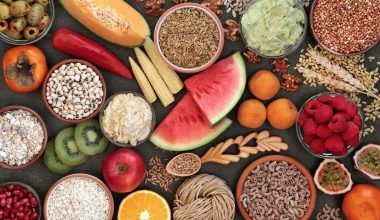What Is a Balanced Diet?
A balanced diet is one that provides the essential nutrients the body needs to function optimally. It includes an appropriate proportion of carbohydrates, proteins, healthy fats, vitamins, minerals, and fiber. Balanced eating supports overall well-being, maintains stable blood sugar levels, and helps prevent chronic diseases like diabetes, cardiovascular disorders, and metabolic syndrome.
However, in an effort to lose weight or control blood sugar, many people adopt extreme dietary restrictions, eliminating entire food groups—particularly carbohydrates. While cutting back on refined and processed carbs is beneficial, removing all carbohydrates can have long-term health consequences.
The Role of Carbohydrates in a Balanced Diet
Carbohydrates are the body’s primary source of energy. When consumed, they are broken down into glucose, which fuels cells, tissues, and vital organs such as the brain. Eliminating carbohydrates entirely can lead to fatigue, cognitive decline, digestive issues, and an increased risk of nutrient deficiencies.
Good Carbs vs. Bad Carbs
Not all carbohydrates are created equal. The distinction between “good” and “bad” carbs is crucial for effective blood sugar management.
- Good Carbs (Complex Carbohydrates): Found in whole, unprocessed foods, these carbs digest slowly, preventing blood sugar spikes and providing sustained energy.
- Examples: Whole grains (brown rice, quinoa, whole wheat), legumes (lentils, chickpeas, black beans), vegetables, fruits, nuts, and seeds.
- Bad Carbs (Refined & Processed Carbohydrates): Stripped of fiber and essential nutrients, these carbs are quickly digested, leading to rapid blood sugar spikes and crashes.
- Examples: White bread, white rice, sugary cereals, pastries, candy, and sugary drinks.
How Good Carbs Can Turn into Bad Carbs in Labs
Food manufacturers often refine natural carbohydrates, stripping them of fiber, vitamins, and minerals to improve shelf life and texture. Whole wheat flour, for example, becomes white flour after removing the bran and germ. Similarly, natural sugars found in fruits and dairy are concentrated and processed into high-fructose corn syrup or refined sugar, which contribute to obesity and insulin resistance.
The Importance of Healthy Fats
Fats are essential for hormone production, brain function, and cell structure. Healthy fats help regulate blood sugar by slowing digestion and preventing rapid glucose absorption. Including quality fats in your diet ensures stable energy levels and supports heart health.
Best Sources of Healthy Fats:
- Monounsaturated Fats: Avocados, olive oil, almonds, cashews
- Polyunsaturated Fats (Omega-3s & Omega-6s): Fatty fish (salmon, mackerel, sardines), flaxseeds, walnuts, chia seeds
- Healthy Saturated Fats: Coconut oil, grass-fed butter, dark chocolate
The Role of Protein in Blood Sugar Management
Protein plays a crucial role in muscle maintenance, tissue repair, and immune function. It also aids in blood sugar stabilization by slowing carbohydrate absorption and preventing insulin spikes.
Best Sources of Protein:
- Plant-Based: Lentils, chickpeas, quinoa, tofu, tempeh, nuts, seeds
- Animal-Based: Lean meats (chicken, turkey, grass-fed beef), eggs, Greek yogurt, cottage cheese, wild-caught fish
The Danger of Restrictive Diets
Many people adopt low-carb or no-carb diets in an attempt to manage blood sugar and lose weight. However, this approach can have long-term negative effects on metabolism, gut health, and overall nutrition. Instead of eliminating entire food groups, individuals should focus on moderation, incorporating a balance of complex carbohydrates, proteins, and healthy fats.
The Key to Sustainable Blood Sugar Management
To maintain stable blood sugar levels and long-term health, follow these key principles:
- Choose Whole Foods: Prioritize whole, unprocessed foods rich in fiber and nutrients.
- Balance Macronutrients: Include a combination of good carbs, proteins, and healthy fats in every meal.
- Eat Mindfully: Avoid overeating and be mindful of portion sizes.
- Stay Hydrated: Water helps regulate metabolism and prevents sugar cravings.
- Exercise Regularly: Physical activity improves insulin sensitivity and glucose regulation.
- Limit Processed Sugars: Avoid refined carbohydrates and sugary beverages.
Conclusion
A balanced diet is the foundation of good health and effective blood sugar management. Instead of following restrictive diets that eliminate essential food groups, focus on incorporating whole, nutrient-dense foods in moderation. By making informed dietary choices, individuals can enjoy sustained energy, improved metabolic function, and a lower risk of chronic disease.





